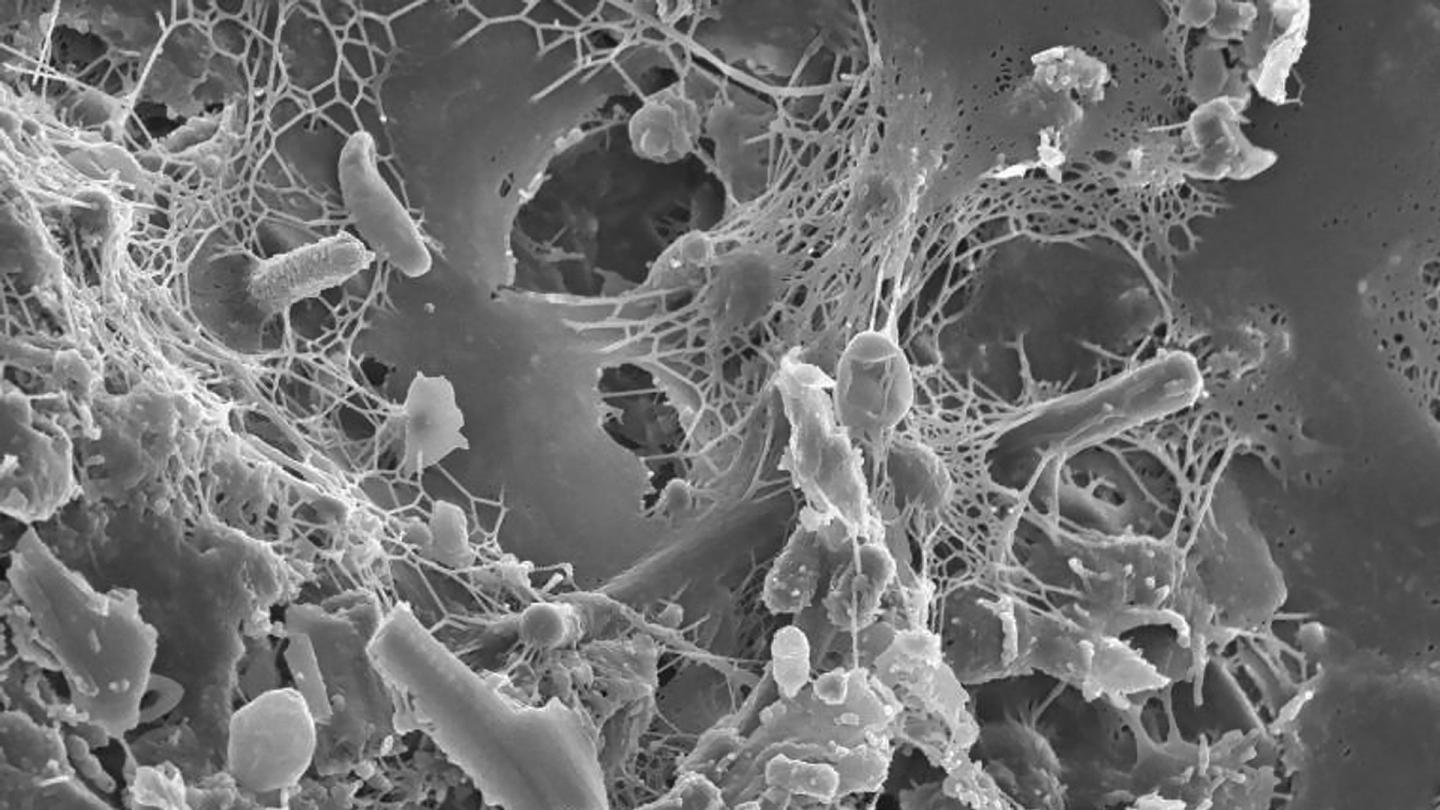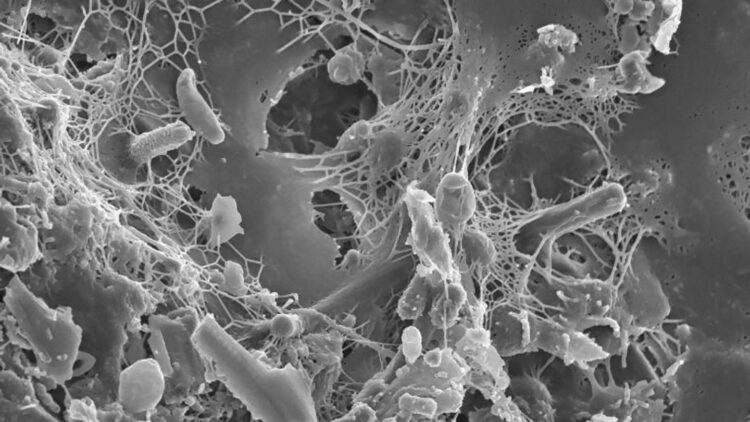
Credit: University of Huddersfield
A CONCEPT known as dry biofilms has emerged over the past few years and they have shown to frequently harbour potentially infectious organisms, just like the ones present in Hospital Acquired Infections (HAIs). However, as these biofilms are dry and microscopic, they persist on surfaces and are able to resist harsh chemicals used to disinfect the environment particularly in noncritical areas of hospitals that aren’t cleaned as thoroughly or as often.
Now, a research project between the University of Huddersfield and Genesis Biosciences has received funding from the National Biofilms Innovation Centre to further understand the form and function of these dry biofilms whilst generating a test method to assess preventative surface cleansers.
The academic lead for the project is Senior Lecturer in Applied Microbiology Dr Simon Rout from the University’s School of Applied Sciences. He explained how the investigation will initially involve designing experiments to create their own dry biofilms, so they are alike to those observed in hospitals.
The next stage will be to investigate the ability of a probiotic cleanser that has been previously developed by project partner Genesis Biosciences. They will analyse how effective it is in preventing dry biofilms from forming onto a surface and whether it can successfully remove an existing dry biofilm.
“As a society we are more aware of the ‘friendly bacteria’, known as probiotics,” said Dr Rout.
“People regularly consume probiotics for potential health benefits, such as preventing ‘bad bacteria’ from becoming prevalent in the gut. So, by the same rhetoric, we wondered if we could use ‘friendly bacteria’ in the fight against bad bacteria via other methods,” he said.
In recent hospital trials carried out by Genesis Biosciences in Italy, the probiotic cleansers reduced the numbers of organisms detected on surfaces, resulting in a 52% reduction in HAI and 75% reduction in costs associated with the prescribing of antibiotics.
“By looking at the DNA of both good and bad bacteria we hope to be able to understand for the very first time how the good bacteria influence the prevention and removal of biofilms and how these probiotic cleansers work against bacteria capable of causing HAI,” said Dr Rout.
The team of researchers will use a confocal laser scanning microscope in order to gain a visual stimulus of what the surface and bacteria looks like before the cleanser and will then examine how it looks following application.
Hospital acquired infections (HAI) have risen sharply due to COVID and the numbers remain persistently high. There is also evidence to suggest that microbes can persist on many surfaces, including keyboards, patient folders and even bottles of hand sanitiser.
Dr Rout, who is a member of the University’s Microbial Therapeutics and Infection Control Centre, explained that there has been some research carried out into the removal of dry biofilms but with chlorine and other similar aggravating chemicals.
“Dry biofilms have emerged as increasingly problematic for health care providers and by conducting this research we hope to provide scientific evidence that demonstrates how the friendly bacteria interacts with the bad bacteria and that it can effectively remove dry biofilms, but without the use of harsh chemicals,” he said.
###
Media Contact
Dr Simon Rout
[email protected]
Original Source
https:/





